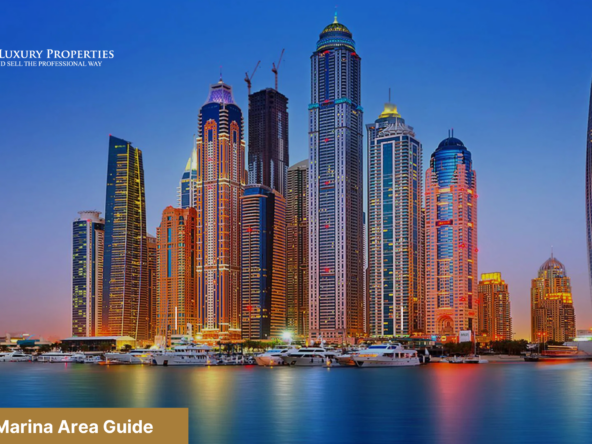Overview of Why Canadians Consider Moving to Dubai
Dubai has become an increasingly popular destination for Canadians looking for a fresh start. With its vibrant economy, tax-free salaries, and luxurious lifestyle, Dubai offers numerous opportunities for Canadian expats. Its business-friendly environment, diverse culture, and modern infrastructure make it a top choice for those seeking to expand their horizons.
Critical Benefits of Living in Dubai for Canadian Expats
- Tax Benefits: One of the most attractive reasons for Canadians to move to Dubai is the lack of personal income tax. Expats can enjoy their earnings without worrying about hefty taxes.
- Career Opportunities: Dubai’s growing economy and business landscape offer a wealth of job opportunities, especially in sectors like finance, real estate, tourism, and technology.
- Luxury Lifestyle: With world-class shopping, dining, and entertainment options, Dubai offers a lavish lifestyle that many Canadians find appealing.
Visa and Residency Requirements for Canadians
Canadians moving to Dubai will need a residency visa to live and work in the UAE. There are various visa options available, including work, investor, and family visas. It’s important to ensure that all documents are in order before making the move. Canadian nationals can enter Dubai on a tourist visa and then apply for a residency visa once there.
Cost of Living in Dubai Compared to Canada
Dubai’s cost of living is generally higher than in many Canadian cities, especially when it comes to housing and dining out. However, due to the lack of taxes and the potential for higher salaries, many expats find the overall cost manageable. Let’s break down the costs:
- Housing: Rent in Dubai can be expensive, especially in central areas. However, there are more affordable options on the outskirts of the city.
- Utilities: Utilities in Dubai tend to be on par with Canadian costs.
- Transportation: Public transportation is affordable, and many expats use taxis or ride-sharing services due to the city’s limited metro network.
Housing, Utilities, and Transportation Costs
Housing in Dubai can vary greatly depending on location, with prime areas like Downtown Dubai and Palm Jumeirah offering luxurious apartments, while less expensive areas such as Deira or Jumeirah Village Circle are more budget-friendly. Utilities can range between $150–$300 USD per month for a typical apartment, and transportation costs will depend on your commuting habits.
Lifestyle Expenses: Groceries, Dining, Healthcare, and Education
- Groceries: Grocery prices in Dubai are often higher than in Canada due to the reliance on imports. Expats can reduce costs by shopping at local markets and buying in bulk.
- Dining: Dining out in Dubai is varied, with both affordable eateries and fine dining options. Eating out regularly can become costly, but there are plenty of budget-friendly options available.
- Healthcare: Dubai boasts a high standard of healthcare, but it can be expensive without insurance. Many expats opt for private health insurance plans.
- Education: International schools in Dubai are abundant but can be pricey, especially for expatriates. Many companies offer education allowances for their employees’ children.
Budgeting Tips for Canadians in Dubai
- Plan Your Budget Thoroughly: Track your monthly expenses to get an accurate picture of your costs and identify areas for potential savings.
- Explore Health Insurance Options: Ensure you have comprehensive health insurance, as medical expenses can add up quickly without it.
- Connect to Expat Communities: Joining Canadian expat communities can help you save money through group discounts or shared resources.
- Understand Local Currency Exchange: Be mindful of exchange rates when transferring money between Canada and Dubai.
The Cost of Living in Dubai vs. Canada
In general, housing, utilities, and education are the biggest expenses in Dubai. However, without income taxes, many expats can save more than they would in Canada, even though the cost of living can seem higher initially. Always keep in mind that the cost of living varies by lifestyle and preferences.
Finding Employment in Dubai as a Canadian
Finding a job in Dubai as a Canadian can be relatively easy, especially in industries where there’s a demand for skilled workers. Popular fields include finance, engineering, healthcare, and education. Expats can find job listings on local recruitment websites, through LinkedIn, or by networking with other expats in the region.
Cultural and Lifestyle Adjustments in Dubai
Moving to Dubai means adjusting to a different way of life. The city is known for its cosmopolitan atmosphere, yet traditional values play a significant role in daily life. Respecting local customs and learning about Islamic culture is key to successfully integrating. Canadians should be aware of local laws regarding dress codes, public behavior, and alcohol consumption.
Healthcare and Education Options for Canadians
- Healthcare: Dubai offers some of the best healthcare services in the world. Most expats opt for private healthcare plans, and many employers provide health insurance as part of their compensation packages.
- Education: Dubai has numerous international schools catering to various curricula. However, the high tuition fees can be an obstacle, so it’s important to plan ahead.
Tips for a Smooth Relocation Process
- Plan Ahead: Organize your paperwork well in advance, including visas, work permits, and housing arrangements.
- Familiarize Yourself with Local Customs: Learn about Dubai’s cultural practices to avoid missteps.
- Seek Local Advice: Ask for tips from fellow Canadians or expats who have already made the move.
Frequently Asked Questions
Do I need to speak Arabic to live in Dubai? No, English is widely spoken in Dubai, but learning basic Arabic can help with daily interactions.
Is it safe to live in Dubai? Yes, Dubai is known for being one of the safest cities in the world.
Can Canadians own property in Dubai? Yes, expats can own property in designated areas within Dubai.
What is the weather like in Dubai? Dubai has a desert climate, with hot summers and mild winters.





